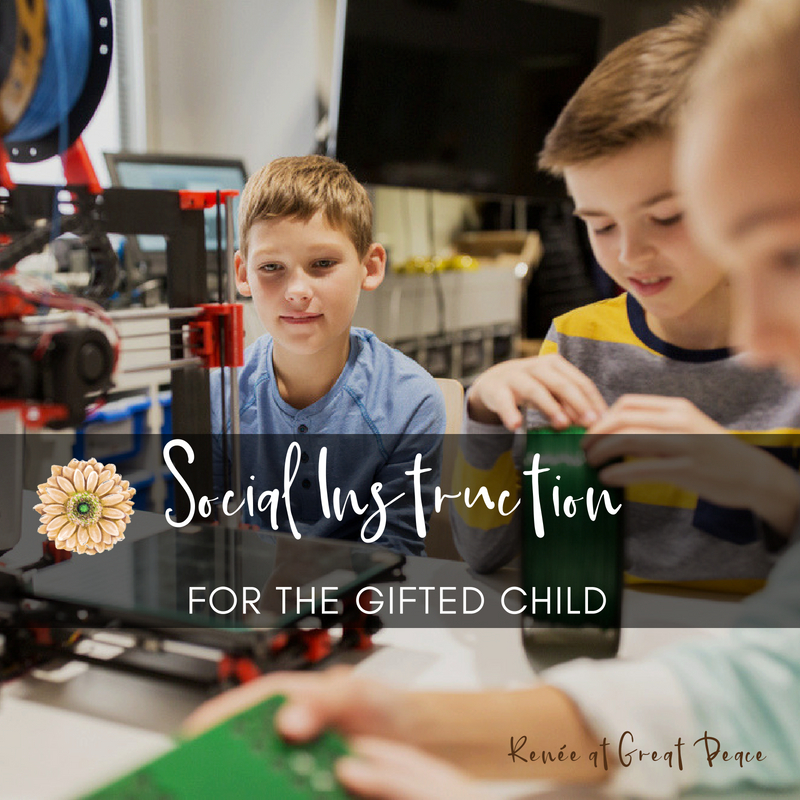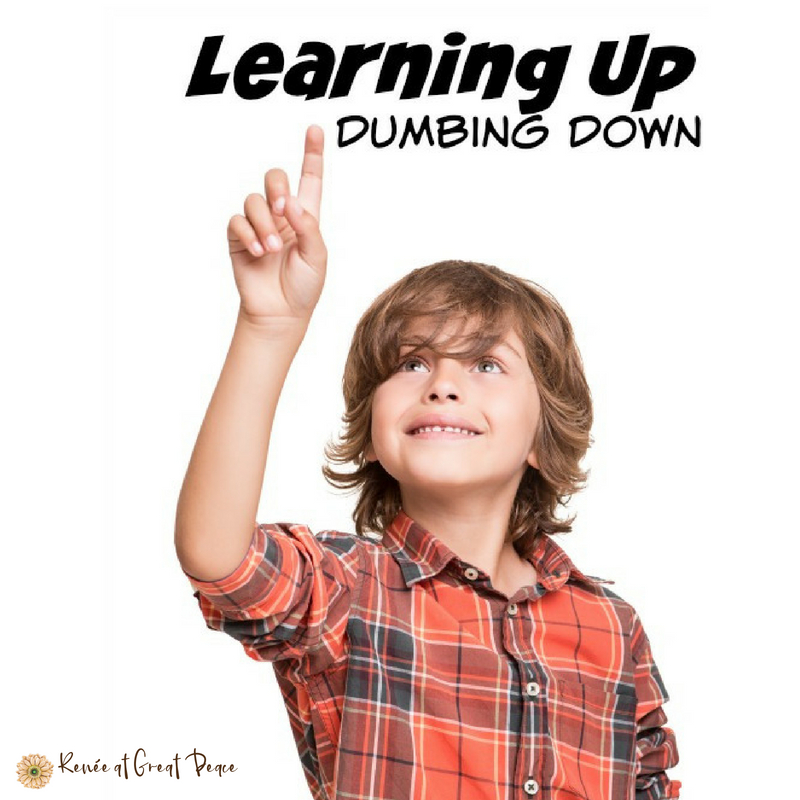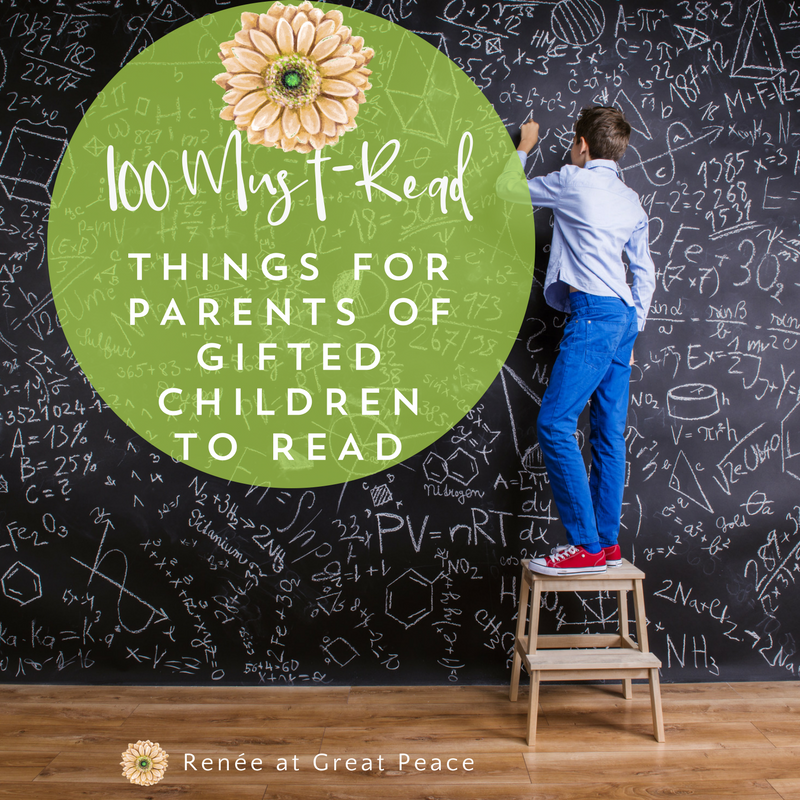
Gifted Homeschooling and the Need for More
One thing that is obvious from even the earliest of ages is that a child who has a gifted mind has an intense need for more. By more, I mean more of everything. A gifted child needs more opportunity, more information, more understanding, more encouragement.
Gifted Homeschooling when Your Child Needs More
I want to break down some areas of giftedness and help identify how each of these areas exhibit a need for more.
Gifted Homeschooling and Understanding the Need for More
▬ More Information
Children who are gifted have a greater ability to process thought and retain information and they adapt what they are learning at a more rapid rate than others. Because of this ability, they have a seemingly insatiable need to fill their minds with more information. To study something on the surface is not enough, they want to fully dive in and discover all there is to know about the subject.
If they reach a point where answers aren’t obvious or clear, they will want to find ways to determine the answers they are seeking. Through observation, experimentation or further research these individuals will not allow their minds rest until they have exhausted the question in search of an answer. To say there is no answer simply isn’t enough. They want/need more information.
“Always asking, “Why?” even from the youngest of ages, and not being satisfied with pat answers that are incomplete, or simply not true, the intellectually OE person is on cognitive overdrive constantly.” – James Deslisle, in his book Parenting Gifted Kids, 2006 p. 39, describing the intellecturally OE (overexcitability) person.
This is where we can see that a child needs to have more opportunity to study at their own pace, in their own way and not be limited by the expectations of others. They need to be afforded the opportunity to advance beyond the perceived norms. They need more variety of resources with which to study. They need to be challenged to think outside expectations to discover answers on their own. Because they are constantly retaining information learned, they need not repeat study but rather be given freedom to explore and study ares that they find challenging and are passionate about.
▬ More Challenge
When a child learns at such a rapid rate and also retains the information learned and can recall it when necessary at a future date the need for repetition isn’t enough of a challenge. Instead they need to be given challenging situation, problems and puzzles. I’m talking about the kind of challenges that make them stop, think and reason within themselves as to what the possible answers could be and then force them to narrow down into the most probable solution.
Questions, tests and worksheets with multiple choice simply will not do this. Because a gifted mind will see the pattern, the obvious right away and there is no challenge.
Challenges can come in a variety of forms.
- Real life situations that are given and then they have to figure out the best course of action.
- Logic & Reasoning Problems and Puzzles
- Differentiation (Changing curriculum by developing strategies which lead to further research, allowing a child to work at their own pace/depth of study, offering additional areas of study for the child’s consideration. I once heard it described this way, “Differentiating instruction is about stretching the curriculum horizontally to meet the demands of challenging the child’s level of understanding.”
- Project Based Studies
Cindy West explains project based learning like this,
“Quite, simply it’s a learning method in which your child dives into a subject and completes some sort of project(s) to show what he knows. Projects can be anything under the sun.” in her book Homeschooling Gifted and Advanced Learners 2012, p. 96.
▬ More Passion
Children with gifted abilities tend to have more passion. They care deeply and have a passionate need to fulfill answers to their questions. They seek those answers with a deep drive and won’t give up until they exhaust the questions to which they seek answers.
Amy Harrington, ESQ, Director’s Corner: Raising a Profoundly Gifted Child an article for SENG stated:
“A profoundly gifted child will have intense focus on passion areas and will fully commit to anything of interest to the exclusion of almost everything else.”

▬ More Emotional Intensity
Gifted children have more emotion. By that I mean their emotions are more intense than is seen in typical learners. Let us remember that the same brain that controls neurons stores the emotional center as well. Those rapidly firing neurons which lead to an increased ability to reason, have awareness, cognition and understanding, also fires neurons leading to emotions.
Those emotions come fast and can last a long time. Often these emotions seem to be random and unreasonable to the person observing the emotional outburst. To the child, however, the emotion is very real, and makes perfect sense in their own mind.
“Although intensity in and of itself is not a bad thing, it can be frustrating. Most of the problems associated with giftedness are linked to these intensities, especially in the area of emotional development.” Christine Fonseca, Emotional Intensity in Gifted Students, 2011, p. 37.
The emotional intensity is, seemingly, typical among the population of gifted children. It is their “norm.” On Wednesday I’ll share tips with you on helping your child to deal with their emotional intensity.
▬ More External Stimulation
Gifted children experience external stimulation in a more extreme way. Their physical senses are heightened, again, I believe this is due to their rapidly firing neurons that once again control not only cognition but also sensory responses. These children often struggle with loud sounds or strong smells. They see things in ways that others do not, and they feel textures and temperature changes more acutely than others.
“Given that children who are intellectually gifted are born with very intense limbic systems, it makes sense that their limbic systems might get overwhelmed easily and that highly gifted children may have challenges processing intense stimulation.” Tips for Parents: Sensory Issues in Gifted Kids: A Developmental Overview and Recommendations for Parenting, Houskamp, B. Davidson Institute for Talent Development, 2008.
This is an area that I personally need more research in. So for now, I just want to help you see that sensory or external stimuli may (or may not) have an affect on your gifted child.
▬ More Understanding
Gifted children need for you, their parent, to be more understanding. They need to know that you have their back and are loving them no matter what. That may require you to think differently about the perceived “norms” of society.
It may mean developing a tough skin, and setting clear expectations. But, it also means that you need to learn that their emotions are real, and true to themselves. While you can teach them ways to self-control, you must also be understanding of their emotion and validate that their emotion is real.
They need for you to understand that their minds simply work differently, they are more passionate, curious and emotional. They need to know that you will work with them, regardless of their schooling situation, to ensure that they are being challenged, encouraged and most of all, loved.

What about you? In what way do you experience MORE from your gifted child(ren)? Let’s chat in comments.
Be sure to read more of my Homeschooling the Gifted Child posts.
Parenting Gifted Children Books to Read
- Parenting Gifted Kids, Dr. James Delisle
- Homeschooling Gifted and Advanced Learners by Cindy West
- Misdiagnosis and Dual Diagnosis of Gifted Children by Olenchak, Goerss, Beljan, Webb, Webb, & Amend
- How Am I Smart, A Parents Guide to Multiple Intelligences by Kathy Koch
- On the Social and Emotional Lives of Gifted Children by Tracy Cross
- Raising a Gifted Child by Carol Fertig
- Emotional Intensity in Gifted Students by Christine Fonseca
This post is part of the iHomeschool Network Homeschool Hopscotch.
*Disclaimer: I am neither a psychologist or educational expert, but I share with you information that I have learned through my own study concerning my gifted child.
















6 Comments
Keri
Thank you for a great article! Some of this was already familiar to me, but you framed it all in a way that really resonated with me and helped me understand some issues we’ve been having with one of our children recently. I appreciate that!
Renee Aleshire Brown
Thank you Keri.
Sometimes we just need a little reminder in the day to day, don’t we. I honestly wrote this one as much form myself as for my readers.
Thank you for coming by.
Amanda Kay
Thank you for this post! I found it very helpful, especially that I need to be more understanding of her sensitivity to sound/the way certain clothes feel/etc…
Renee Aleshire Brown
You are so welcome. I too have struggled with my son’s sense of smell/taste and loud noises. So I’ll be researching this one a bit more in the coming months. Now that I know a bit more, it totally makes sense.
Carissa
Our sweet girl is definitely a sensitive one, and the “needing more” description fits her to a T, since birth. We’ve recently started working with an occupational therapist, and she was able to identify that our daughter is in a nearly constant state of “high arousal”, and has been all 2 1/2 years of her life. We now have a prescribed sensory diet for her, and we’ve seen improvements in a matter of days! It’s fascinating to see how that seems to fit in with what I’ve read about ” overexcitability”. I’m wondering if anyone else has had their gifted little one in occupational therapy, and if it helped them as well. I’ve read so many things on how OT can help those with autism, SPD, and ADHD, but haven’t specifically looked up OT and the gifted. Clearly, it seems to help the neurodiverse though, and giftedness can be put into that category. This article was fantastic, you’ve got me hooked to your blog!
Renee Aleshire Brown
Ah, thank you. What a kind thing to say. I have heard of gifted families utilizing OTand/or PT.
I think there may be some articles on the sengifted.org site regarding different therapies, misdiagnosis, and even 2e, children.